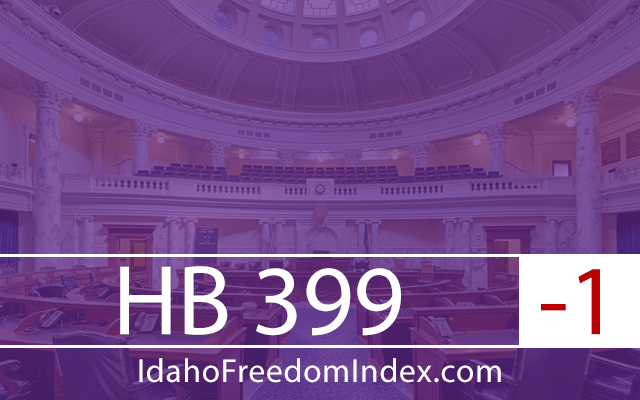


Bill description: HB 399 would classify juvenile corrections officers and probation officers under the PERSI rule of 80.
Rating: -1
Does it increase government spending (for objectionable purposes) or debt? Conversely, does it decrease government spending or debt?
Most employees in the Public Employee Retirement System of Idaho pay into the system and plan to receive their benefits when they reach the age of 65. Alternatively, they can receive benefits when they retire early under the Rule of 90. This rule adds an employee’s age and years of public service; when the sum total equals 90 years the employee can begin taking early retirement benefits.
For police officers and firefighters the general retirement age is 60 years and their early retirement is calculated under the Rule of 80. This requires the sum of their years of service and their age to equal 80 instead of 90.
For purposes of retirement, HB 399 would classify state juvenile corrections officers, county juvenile detention personnel, juvenile probation personnel, and misdemeanor probation personnel as police officers. This would grant them retirement under the Rule of 80 rather than the Rule of 90. The individuals already in these positions would be given the option of remaining under the Rule of 90 or shifting to the Rule of 80.
By expanding the Rule of 80 beyond the positions it was originally established for, HB 399 would increase the cost to the state and counties for each person they hire for these positions. In order to retire under the Rule of 80, the employer and employee have to pay a higher rate into the retirement system to ensure their contributions are fully funded by the employee’s retirement. This earlier retirement age would require a 0.34 percent increase in the state and county agencies’ contributions. The Fiscal Note for this bill estimates that the change proposed under HB 399 would increase annual costs by $107,477 across the state Department of Juvenile Corrections and all local governments.
(-1)


